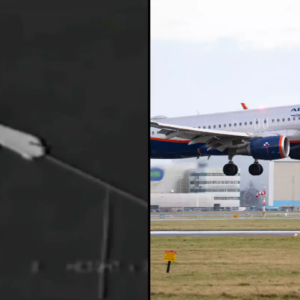NASA got Sick of Conspiracies so Released over 10,000 Photos from Moon Landing
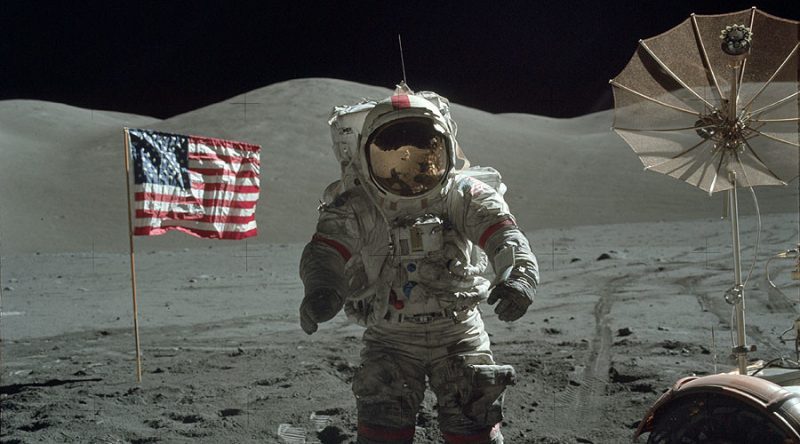
It was during the presidency of Dwight D. Eisenhower that the United States’ space program was launched. The program was given the codename “Apollo” and was put under the control of the National Aeronautics and Space Administration (NASA).
It was only after Eisenhower had been succeeded by John F. Kennedy that the American public really learned the significance and purpose of this program: to put a man on the Moon.
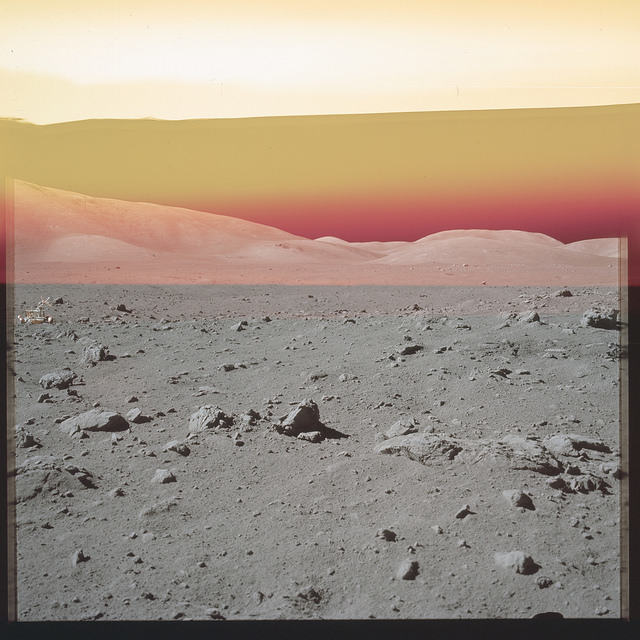
Surface of the moon. Photo by Project Apollo Archive CC BY 2.0
At the time, the United States and the Soviet Union were embroiled in the infamous “space race”, with both nations eager to outdo the other and pursue new lengths of human exploration, beyond the very atmosphere of our own home planet.
The Apollo program subsequently launched no less than 12 missions between 1969 and 1972, with half of them making it all the way to the Moon.
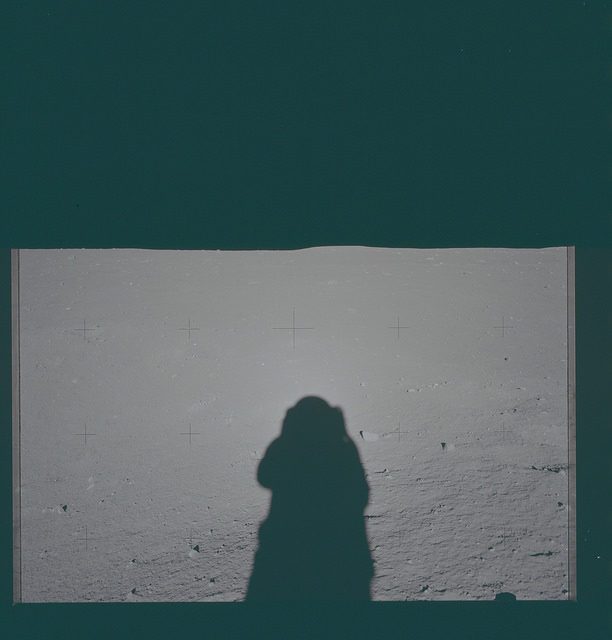
Neil Armstrong photographs the Moon. Photo by Project Apollo Archive CC BY 2.0
The first of the launches, Apollo 1, didn’t actually launch at all. It suffered a malfunction and wasn’t able to leave the Earth’s surface. Apollos 7 through 10, the next four launches, were orbiting missions to test various components and take photographs of the lunar surface elements.
But it was Apollo 11 that would really go down in history. This mission — manned by Neil Armstrong, Michael Collins and Buzz Aldrin — not only made it to the Moon, but actually made a successful landing and allowed both Armstrong and Aldrin to step out onto it’s surface.
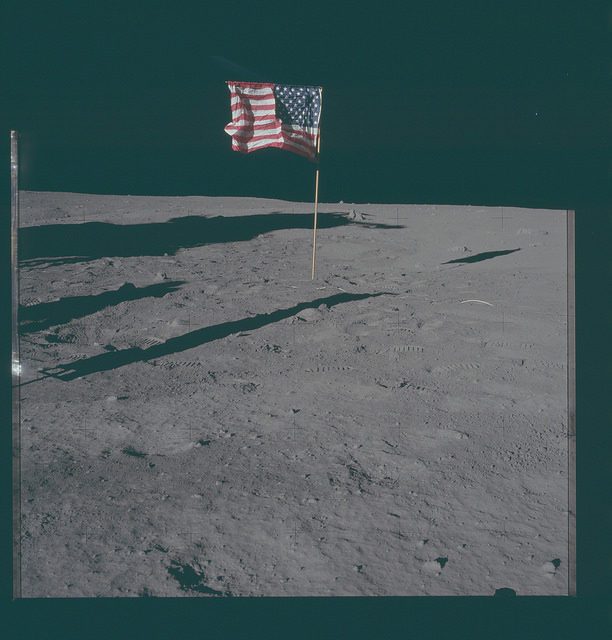
American flag on the Moon. Photo by Project Apollo Archive CC BY 2.0
The pair spent a couple of hours on their moonwalk, taking photos, recording their experiences, collecting rock samples, and planting the American flag, thereby putting a definitive end to the space race and sealing the United States’ status as the victor.
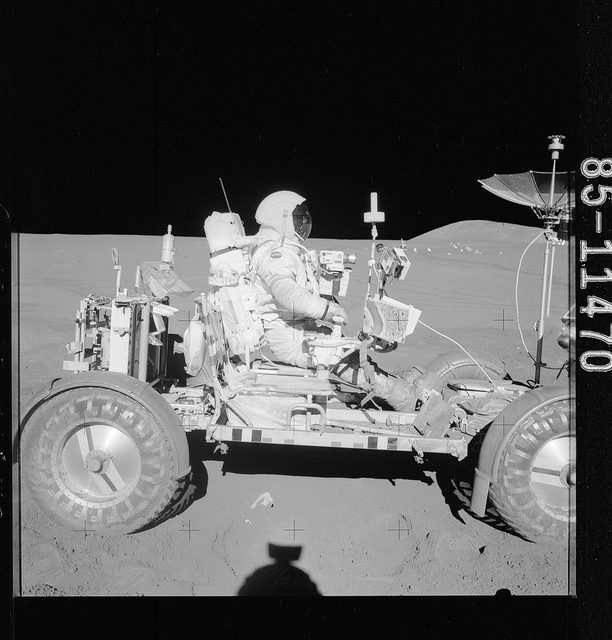
Astronauts driving on the Moon. Photo by Project Apollo Archive CC BY 2.0
Crew member, Michael Collins is often overlooked due to the fact that he stayed behind on the Command module, but he was integral to the mission’s success.
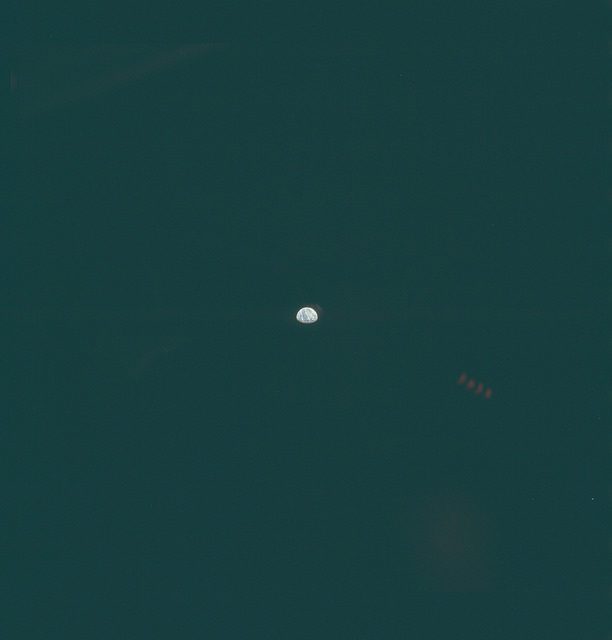
Earth from the Moon. Photo by Project Apollo Archive CC BY 2.0
As previously stated, several other missions made it to the Moon, but none could really generate the same excitement as Apollo 11. That incredible video of Neil Armstrong taking his first steps on the surface of the Moon has been seen and shared by millions, with many photos also being taken and released to the public in the wake of the mission.
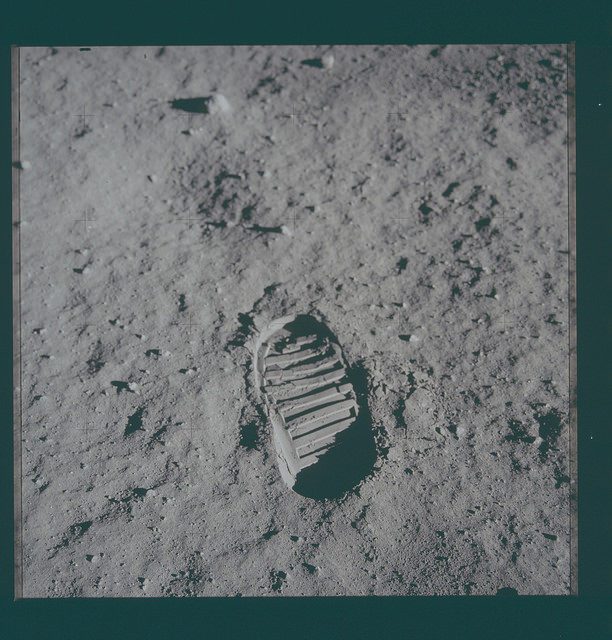
First human footprint on the Moon. Photo by Project Apollo Archive CC BY 2.0
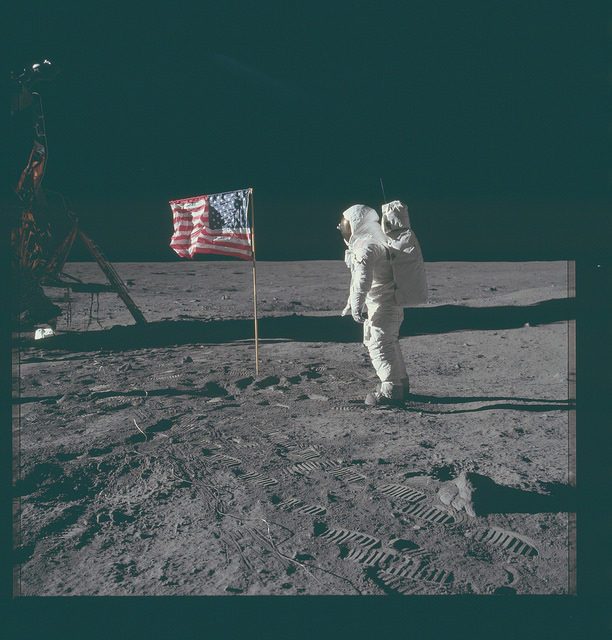
First Moon Landing. Photo by Project Apollo Archive CC BY 2.0
In spite of all that evidence, however, as well as the proof from other successful space missions, there are many people who argue to this day that the whole thing was fake. In fact, the moon landings are one of the most popular subjects of debate for conspiracy theorists all over the world, with people suggesting various alternate explanations for the footage and photos.
Some have argued that the whole thing was a hoax, drawn up by the American government to try and outdo Russia and earn popularity points with the public. Some have found alleged errors or inconsistencies in the footage to support their claims, with others suggesting that the whole thing was shot on a Hollywood film set, funded by Walt Disney and directed by Stanley Kubrick.
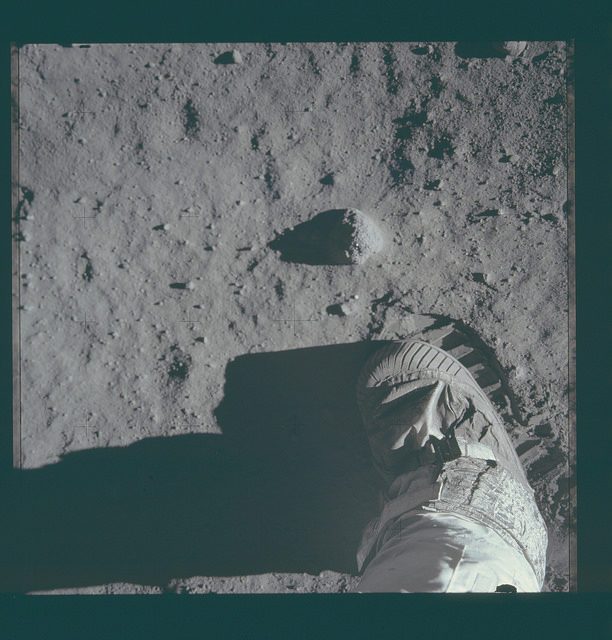
Neil Armstrong put his left foot on the rocky Moon. Photo by Project Apollo Archive CC BY 2.0
These conspiracy theories started many years ago and are still a hot topic in the modern era, especially with the recent emergence of the Flat Earth Movement and growing support for the idea that NASA has been lying to the public for decades. For a long time, NASA simply ignored the conspiracy theorists, but in 2016, the organization decided to make a big statement.
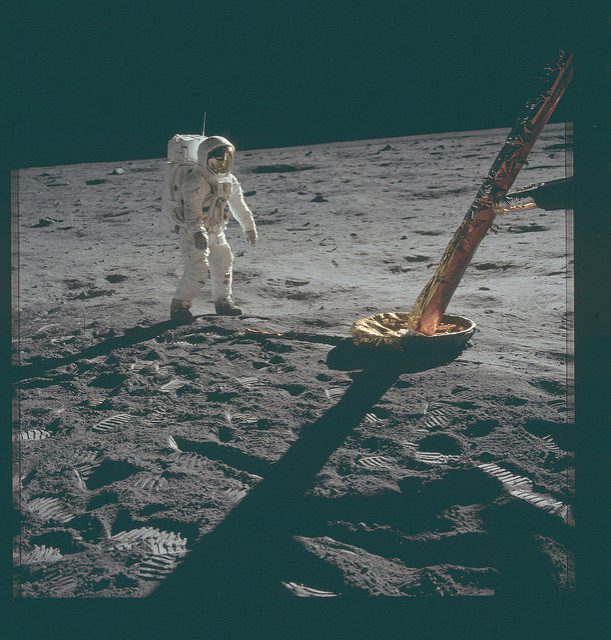
The first photograph was taken by Neil Armstrong on the surface of the Moon, 1969. Photo by Project Apollo Archive CC BY 2.0
NASA released over 10,000 photos of the first moon landing, uploading almost every single image ever taken on the Apollo missions on their public Flickr account for all to see and analyze.
Read another story from us: Apollo 11 Tapes Made Public – NASA Releases 19,000 Hours of Historic Audio
In doing so, NASA effectively shut down a lot of the conspiracy theorists’ ideas; faking one film or a couple of photos might seem plausible enough, but faking thousands of shots from different angles, times, dates, and more would be a truly impossible undertaking.
News
The “Red Zone” – Land Still Abandoned Due to the Dangers Left by the First World War
The “Red Zone” – Land Still Abandoned Due to the Dangers Left by the First World War In the aftermath of the First World War, large areas of northeast France were left in ruin. Years of constant siege warfare along…
Before Becoming a Big-Name Actor, Richard Todd was a Paratrooper Who Fought at Pegasus Bridge
Before Becoming a Big-Name Actor, Richard Todd was a Paratrooper Who Fought at Pegasus Bridge Photo Credit: 1. Sgt. Christie, No. 5 Army Film & Photographic Unit / Imperial War Museums / Wikimedia Commons / Public Domain 2. Silver Screen…
The Potsdam Giants: A Prussian Infantry Regiment Of Nothing But Very Tall Soldiers
The Potsdam Giants: A Prussian Infantry Regiment Of Nothing But Very Tall Soldiers Frederick William I inspecting his giant guards known as The Potsdam Giants, a Prussian infantry regiment No 6, composed of taller-than-average soldiers. Frederick William I of Prussia,…
Ellen DeGeneres cuts a very casual figure as she drives around in her Ferrari
Ellen DeGeneres cuts a very casual figure as she drives around Montecito in her Ferrari… while preparing to embark on her stand-up tour Ellen DeGeneres cut a very casual figure as she made her way around Montecito on Tuesday morning. The…
“I’m heavily tattooed and keep getting rejected for jobs – it’s not fair”
Heavily tattooed OnlyFans star, 23, with multiple piercings on her FACE slams TJ Maxx for rejecting her for a job – accusing retailer of unfairly judging her dramatic look A woman has accused TJ Maxx of rejecting her for a…
All 75 passengers killed in plane crash after pilot let his chirldren control the plane
Praying, turning the engine off by accident and letting KIDS play with the controls: The worst blunders made by pilots before a crash revealed Every time we board a plane, we put our lives in the hands of the pilot….
End of content
No more pages to load





